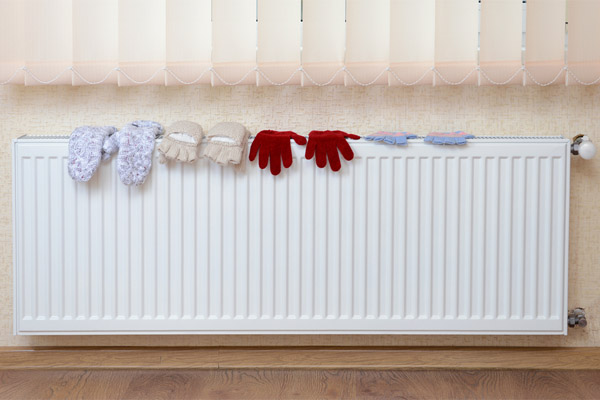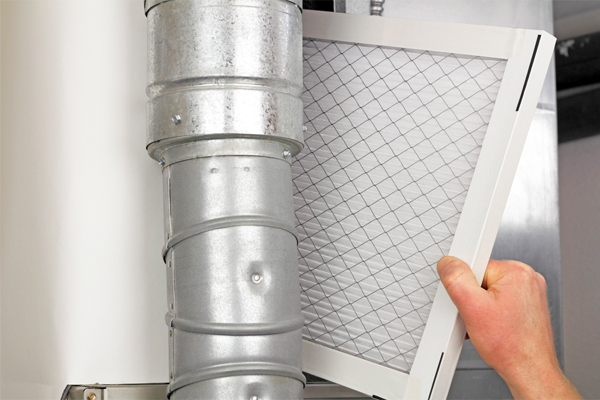What Is the Difference Between A Boiler And A Furnace?

It is common for most people to confuse boilers with furnaces. Although both types of equipment work to produce heating for a house or building, they differ in many ways. The truth is that it is the only similarity they have. When you’re hoping to replace your old heating unit at home, you most likely will choose between a boiler vs. furnace. The decision you make depends on your heating needs and your current setup.
The only way to know which heating system addresses your needs is to understand the differences and unique advantages of each.
Differences Between Boiler Heating Systems and Forced-Air Furnaces
Table of Contents
In this article, we discuss some of the fundamental differences between these two heating systems.
Boiler
A boiler is described as a closed container that houses water or other forms of liquid. The liquid is heated for the purpose of producing vapor or steam. The boiler serves as the main component of a modern heating system and plays a critical role in the emission and distribution of heat.
Hydronic heating or radiator system is the process of using water or any other liquid substance for heating. Aside from the boiler, this heating system is made up of a baseboard, a pipe system, radiators, and a circulator pump. The different components are set up in various rooms and zones in a house or building to pave the way for the effective distribution of heat. A typical residential boiler system has all those components.

Furnace
The furnace is different from that of a boiler since it uses air to heat an indoor environment. It distributes the heated air to the various rooms through the concept of “forced-air heating.” The concept works by forcing cool air through a heat exchanger for it to be heated. The heated air will pass through the existing HVAC ductwork for distribution. A furnace is categorized in three variants – horizontal, downflow, and upflow. The fuel source could be electricity, gas, oil, or, most recently, induction.
The Differences Between Boilers and Furnaces
The primary difference between a boiler and furnace is the manner of operation. The boiler heats water or any liquid inside the tank or container to produce the needed warmth. It will push hot water using a system of pipes running through the property. The hot water heats the pipes, and from there, the heat will warm the rooms. The boiler system keeps your house or building warm as it produces steam or hot water consistently.
Meanwhile, a furnace uses a heat exchanger to produce warmth. The process begins by heating up the air, which in turn is circulated throughout the living space. While the boiler uses pipes to circulate heat, the furnace takes advantage of ductwork. A blower motor is used for effective distribution.

Boiler Vs. Furnace: Energy-Efficiency
Since it requires more energy to heat up air than water, it’s fair to assume that furnaces tend to consume more fuel compared to boilers at any given time. On the other hand, the upfront cost of purchasing a boiler is higher, but you expect it to last longer than a furnace. Some factors can contribute to the longevity of your heating equipment, including the maintenance it receives.
Boiler Pros And Cons
Pros
- Efficiency– Boilers are a preferred option in many residential settings because they use less fuel in producing heat.
- Minimal Noise– Since a boiler does not need to produce hot air, it means you expect it to be quieter compared to how a furnace works to heat your home.
- Consistency– Science proves that hot water or vapor provides a more consistent heat compared to heated air.
- Air Quality– Because a boiler doesn’t move air, it means that it also prevents the likelihood of bringing along allergens, dust, and other particulates with it. Hence, it offers a much better indoor air quality.
Cons
- Heat-Only Function– The most notable drawback of a boiler is that it is exclusive to heating. It cannot cool your home, unlike modern HVAC systems. Although furnaces can’t cool your home, the ductwork in the system may also be used for a central cooling system.
- Installation– Boilers require a considerably longer time to install. Installation is more complicated, too.
- Slow Adjustment to Heating Temperature Changes– One problem with boilers is that it will take them a significant time to transition whenever there’s a substantial change in the thermostat setting.
- Leaks– An old or damaged boiler increases the risk of water or fluid leaks.
- Difficult Conversion– If you decide to switch from a boiler system to furnace heating, it will require a ton of expertise, effort, and money, especially when it comes to the installation of ductwork.

Furnace Pros And Cons
Pros
- Flexible– One thing that makes furnaces stand out is the versatility it provides when choosing a fuel source. You can use electricity, oil, propane, and natural gas. Some modern variants use geothermal or solar energy.
- Fast-Acting– A furnace generates heat quicker than a boiler. You will experience the benefits of heating in no time.
- Cost– Since there are many furnace manufacturers on the market, you can expect the price of buying a furnace to be more competitive than buying a boiler.
- Minimal Leaks– The leak associated with a furnace is that of air, not liquid. Hence, you expect less damage than dealing with a leaky boiler.
- No Freezing Hazard– Since furnaces heat air and do not rely on pipes for distribution, it means that there are no risks of frozen pipes in the winter.
Cons
- Noise– Unlike boilers, the furnace produces a lot of noise because of the blowers that work to move air. So, when you turn the equipment on, you can expect some noise to go with it.
- Heat Consistency– The issue with heated air is that it does not generate consistent heating when compared to steam or hot water. Hence, you will notice that some rooms are warmer (or colder) than others.
- Air Quality– Heating systems rely on air filters to maintain indoor air quality. The problem with furnaces is that if you don’t regularly clean or replace the filters, you’ll feel a significant difference in comfort due to diminished air quality.
Call Hart Home Comfort To Handle All Your Home Heating Needs

You can’t go wrong with either a boiler or furnace. However, there will be compromises along the way. The choice you make depends on your specific heating and cooling needs, as well as the existing home setup. If you are looking to replace old heating equipment, you should know that modern variants of boilers and furnaces are highly efficient. It’s best to seek help from your local HVAC contractor for the installation of your new home heating equipment.
Hart Home Comfort is the area’s most experienced and established heating and cooling company. Our team of NATE-certified technicians can handle all your HVAC repair, installation, and maintenance needs.
Call Hart Home Comfort today to schedule a free, in-home estimate.
For any questions about what Hart Home Comfort can do for you, give us a call today. Click here to contact us now or call us at (631) 667-3200 to find out more!
